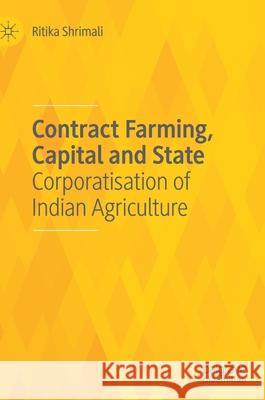Contract Farming, Capital and State: Corporatisation of Indian Agriculture » książka
topmenu
Contract Farming, Capital and State: Corporatisation of Indian Agriculture
ISBN-13: 9789811619335 / Angielski / Twarda / 2021 / 178 str.
Contract Farming, Capital and State: Corporatisation of Indian Agriculture
ISBN-13: 9789811619335 / Angielski / Twarda / 2021 / 178 str.
cena 484,18 zł
(netto: 461,12 VAT: 5%)
Najniższa cena z 30 dni: 462,63 zł
(netto: 461,12 VAT: 5%)
Najniższa cena z 30 dni: 462,63 zł
Termin realizacji zamówienia:
ok. 22 dni roboczych
Bez gwarancji dostawy przed świętami
ok. 22 dni roboczych
Bez gwarancji dostawy przed świętami
Darmowa dostawa!
Kategorie:
Kategorie BISAC:
Wydawca:
Palgrave MacMillan
Język:
Angielski
ISBN-13:
9789811619335
Rok wydania:
2021
Wydanie:
2021
Ilość stron:
178
Waga:
0.40 kg
Wymiary:
21.01 x 14.81 x 1.27
Oprawa:
Twarda
Wolumenów:
01
Dodatkowe informacje:
Wydanie ilustrowane











